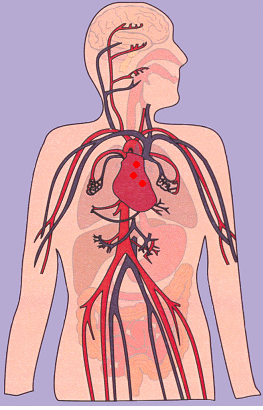|
The respiratory system is made up of organs and tissues that help you breathe.
The main parts of this system are the airways, the lungs and linked blood vessels, and the muscles that enable breathing.
Airways are pipes that carry oxygen-rich air to your lungs, and carry carbon dioxide (a waste gas) out of your lungs.
Some examples of airways are the nose, mouth, larnyx (your "voice box"), and the trachea (or "windpipe"), among others. The circulatory system is directly tied to the respiratory system. Red blood cells collect oxygen from the lungs and carry it to the parts of the body where it is needed. Red blood cells then collect carbon dioxide and transport it back to the lungs, where it leaves the body when we exhale. Without oxygen, the body cannot survive. Within four minutes, brain cells begin to die, which can lead to brain damage, and ultimately, death. When lungs become damaged, the body must work much harder to provide oxygen. For this reason, it is important to maintain good respiratory health by avoiding activities that cause damage to the lungs (such as smoking) and to avoid areas with heavy air pollutants. |
 |